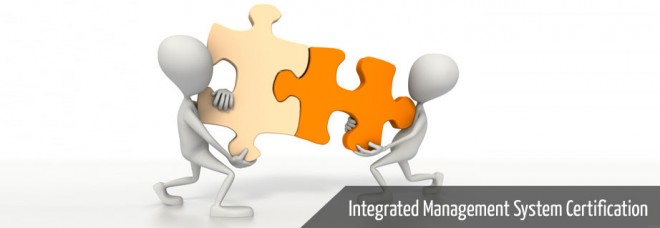Whilst most organisations have management systems in place for procedures such as workplace safety or quality assurance, many feel they have nothing to gain from achieving integrated management system certification. So how do you know if it’s right for you?
To answer that, we need to return to the source, as it were. Management systems based on International Standards – or ISOs – tend to be based around the PDCA or Deming Cycle, which is a key component of the integrated system.
The Deming Cycle is named after W. Edwards Deming, an American professor, author, engineer and management consultant. Deming came up with 14 key management principles, based around leadership, training, communication, and consistency of quality.

Key Part of Management Systems
PDCA stands for Plan-Do-Check-Act – a method used in business for the control and continual improvement of processes and products. And this is very much a key part of ISO management systems, including integrated management services.
As with most business systems, it is based on logic and commonsense. If you Plan before you Do, you’re more likely to get it right first time. But you still need to Check that your system is working, and Act if it is not.
Continual assessment is an important part of the ISO certification process, which is why many organisations choose to put key staff through internal auditing training, to help them monitor the management systems.
Crossover of Systems
What is apparent, is that there are many crossovers in business management systems. For example, let’s say your company manufactures cleaning products. The management areas this would affect include quality assurance, workplace health and safety, handling of hazardous materials, and, of course, environmental management.
Each of those management systems has its own set of documents and procedures, and each would need to be audited. Integrated management system certification, however, would combine those systems, reducing documentation, duplication, cost, time and any disruption caused by the auditing process.
It would also ensure that management’s eye was on the ball at all times, and produce a more unified approach to your everyday business.
Pros and Cons
In all these respects, yes, integrated management system certification would be a good choice for your organisation. However, there are issues that could be perceived as negatives, which we’ll now look at in more detail.
Clearly there is a cost to implementing an integrated management system, in terms of professional consultants, training, man-hours, software and so on. That cost will be more than covered by the savings you make in the future so, even if implementation is not within your current budget, it may be something to plan for in the future.
The same theory can be applied to time-efficiency. My view is that the substantial time saving you will enjoy in the future with an integrated management system, is well worth the time it takes to get the system up and running. In addition, the requisite staff training can only improve the overall running of your organisation.
Integration for SMEs
Many larger organisations practice integrated management because it just makes sense when you are dealing with large numbers of employees and customers, and huge orders. So you might feel, as a smaller business, that it’s not right for you.
However, there is another reason large, brand name organisations adopt it – to protect their reputation. The major players know only too well the negative effect of, say, a workplace accident, chemical spill, or potentially lethal production error.
By utilising an integrated management system, they understand that all elements of the organisation are being checked more frequently and more diligently, thus reducing the margin for error. Your organisation may not be a major toy manufacturer or constructive company or clothing brand, but you can still benefit from that added in-built protection. Your reputation is just as important, and can be just as easily damaged by a mistake.
The Role of Quality
Admittedly, while environmental management and workplace safety are closely related, quality assurance does not fit so easily into that equation, so you may not see the point in integrating. But shouldn’t quality form the basis of every product and service?
Whereas environmental management and workplace safety may be driven more by legislation, quality is driven by your customers. If the quality is not there, they will go elsewhere! In that respect there is nothing to lose by integrating these management systems.
Moreover, ISO 9001 – the International Standard pertaining to quality assurance – is often part of the tender process for organisations wishing to supply or work with larger organisations.
Helping Your Business Thrive
The Huffington Post recently ran an article which included a great analogy. It suggested that business is like the human body, and that the business heart – like the human heart – is critical to its survival. The blood of the business body is its people. However, the human body has many different systems and elements, and these all need to work together to keep us alive and healthy.
In just the same way, all the different elements of an organisation must work together, as one integrated system, to help it survive and thrive.
